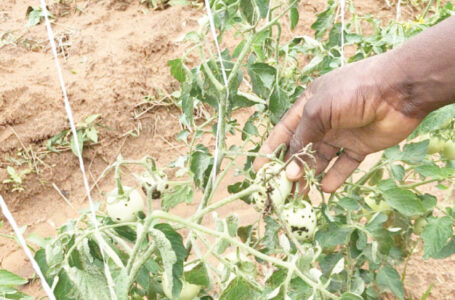Witness narrates how Ex-HoS, allies diverted public funds to private companies in court
Bandits Prevented Cultivation Of 50,000 Hectares In Katsina, Says Masari


By Joseph Ayinde
Governor Aminu Masari of Katsina State has said that over 50,000 hectares of farmland were abandoned by farmers in the state in 2020, due to bandits’ attacks.
Masari made the disclosure on Thursday in Katsina at the launch of the 2021 Maize Wet Season Farming and the first Maize Pyramid in Nigeria.
The event was organised by the Maize Association of Nigeria in collaboration with the Central Bank of Nigeria Anchor Borrower Programme.
The governor, however, said in spite of the disruptions, farmers had recorded a good harvest.
He noted that the anchor borrower programme had impacted positively on the lives of small scale farmers in the state.
“I wish to express our sincere appreciation to the Federal Government for the current commitment in the fight against banditry, cattle rustling, kidnapping, armed robbery, among others.
“I also express gratitude for initiating the Anchor Borrower Programme, which has supported the government efforts in bringing back the lost glory of the agricultural sector.
“For maize production, from 2016 to 2019, there has been an increase in the hectares cultivated during the periods.
“In the last five years, the state has generated 1.2 million short term jobs, for one to six months, and 249, 551 long term jobs from six months and above were created,” he said.
The governor pledged that the administration would continue to join hands with development partners in agriculture for increased productivity.
Masari said the government would also continue to ensure that farmers have access to farm inputs.
In his remarks, the Emir of Katsina, Alhaji Abdulmumini Kabir, represented by Alhaji Lawal Bagiwa, commended CBN and the maize association for the successes recorded.
The emir urged the government to step up efforts at ending banditry and kidnapping, in order to protect farmers and other citizens.
“I hope security agents will do more to enable farmers to go back to their farms and plant crops,” he said.








